Stress can play a large role in the overall health of both humans and their companion animals. Because pet birds are naturally very sensitive creatures, they tend to be unable to deal with stress as easily as other types of pets such as cats and dogs. Being able to recognize stress in your pet bird is important for maintaining an environment that your feathered friend can mentally and physically thrive in. It's a good idea for bird owners to learn how to monitor their birds' stress levels and make adjustments as needed to keep their pets healthy and happy.
- 01 of 12
Why Do Birds Experience Stress?
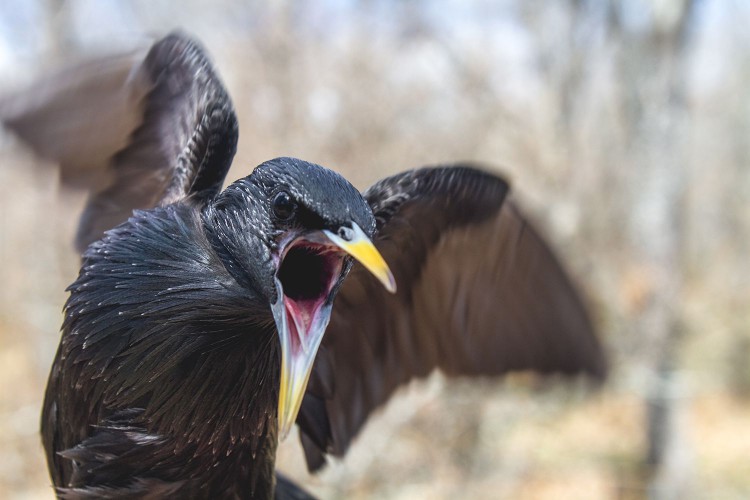
Cristiano Gala/Getty Images
Like humans, birds can experience stress for a number of different reasons. Birds are creatures of habit. A change to their schedule or environment can be a stressor.
Changes to the environment, from a move to a new home, new family members or pets, outside noises (construction, trucks, thunder), paint color, or change of location can cause stress. A new routine (the owner's or the bird's) can be stress inducing. Unfamiliar wild animals, even seen from the window, like hawks, raccoons, deer, or something else can upset a bird. A change in the light cycle, like a move to a darker room, daylight savings, or a cage covering, can all cause a bird to be rattled.
02 of 12Signs Of Stress in Birds
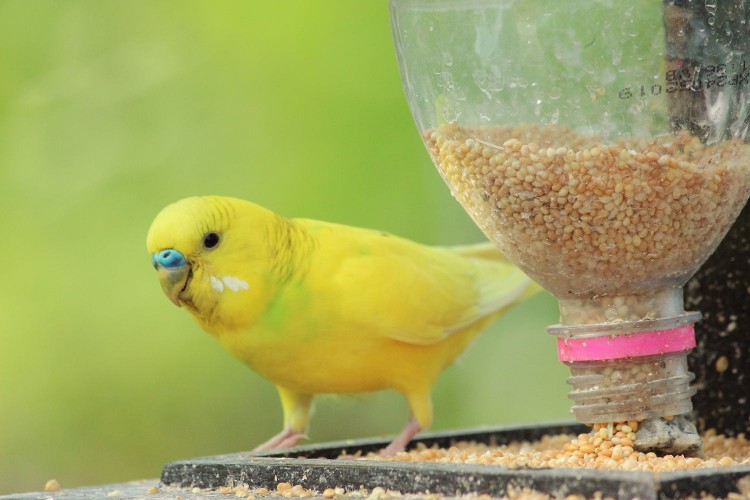
Winny Fadhila / EyeEm/Getty Images
Birds can exhibit stress in a number of different ways. They should all be taken seriously and a vet should be consulted as soon as you notice these signs. Some can be more physically harmful than others, but all should be a matter of concern. Signs to look for include:
- Stress Bars
- Feather Picking and/or Self Mutilation
- Aggression
- Loss of Appetite
- Change in Vocalization
- Repetitive Behavior
- Fear
- Boredom
03 of 12Stress Bars
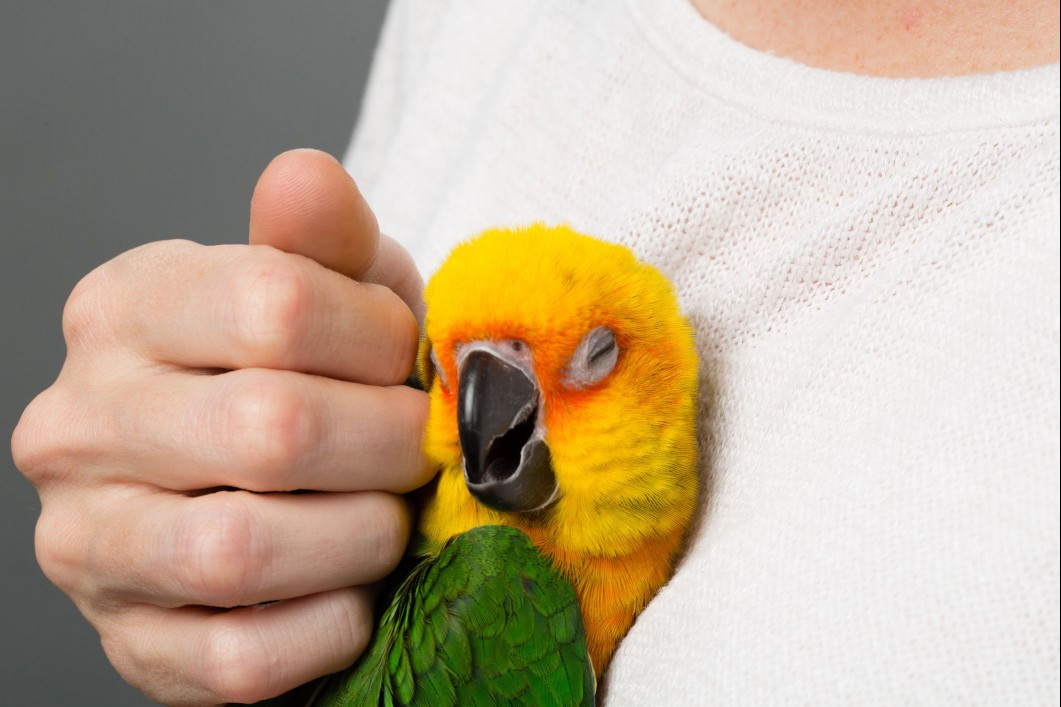
Getty Images/Sean Murphy One of the most common physical indications of stress in pet birds is the appearance of stress bars on a bird's feathers. Stress bars are small lines that run horizontally across the shafts of a bird's feathers. While it can be difficult to assess stress bars in feathers that are still on a bird, examining molted feathers can give a quick indication of whether or not a bird is having issues with a stressor in its environment. The presence of stress bars will not indicate exactly what is wrong with a bird. Rather, they're a red flag that bird owners can use to start looking for potential sources of stress that their pets may encounter.
04 of 12Feather Picking and Self Mutilation
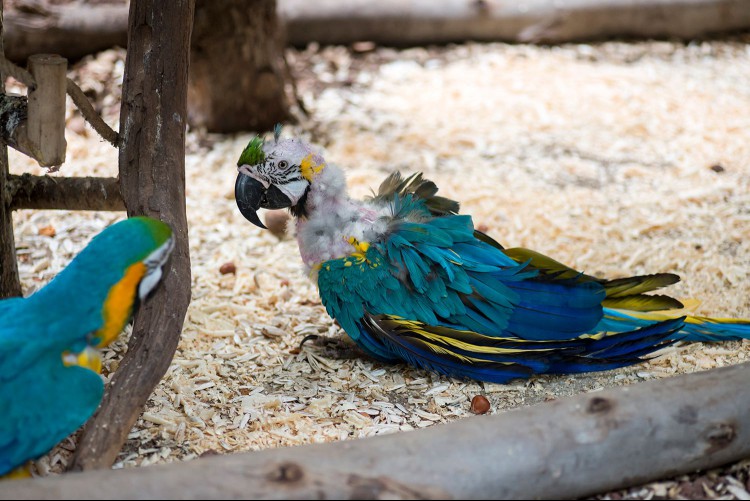
CasPhotography/Getty Images
Another common sign of stress (and boredom) in birds is feather picking. It can occur in both large and small birds. It may be initiated by a stimulus (loud construction noise), but continue once the stimulus stops. Some birds will continue beyond self-picking into self-mutilation. They can chew on their skin and some will dig even deeper into the muscle or even bone. This can cause severe damage. Birds with these symptoms should be seen by a vet right away. They may be prescribed medication and fitted with an Elizabethan collar so they can't access their body.
Continue to 5 of 12 below05 of 12Aggression
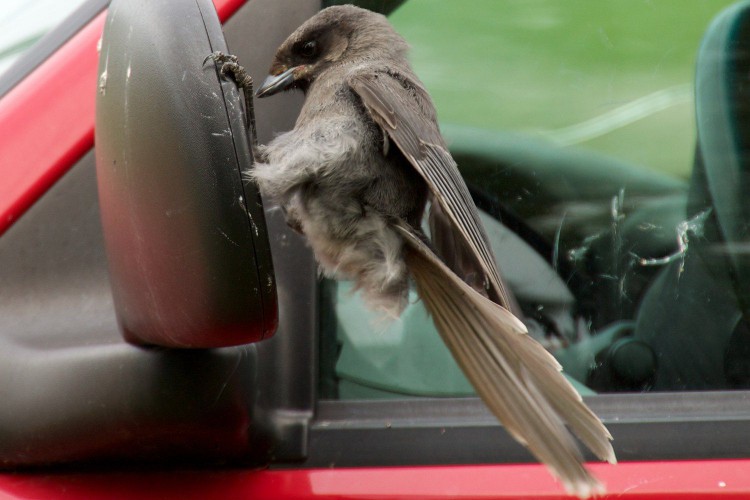
Gerry/Flickr/CC by 2.0
The sudden onset of aggression in a pet bird can also be an indicator that the bird is experiencing stress in its environment. Aggressive behaviors, such as biting, hissing, lunging, and excessive screaming, can manifest almost overnight.
If you notice this sort of behavioral change in your pet, it may be a good idea to schedule an appointment with an avian vet to rule out any possible health problems. If your bird gets a clean bill of health, then you can begin to figure out exactly what triggers the behavior, and how you can adjust your bird's environment or routine to make it more comfortable.
06 of 12Loss of Appetite
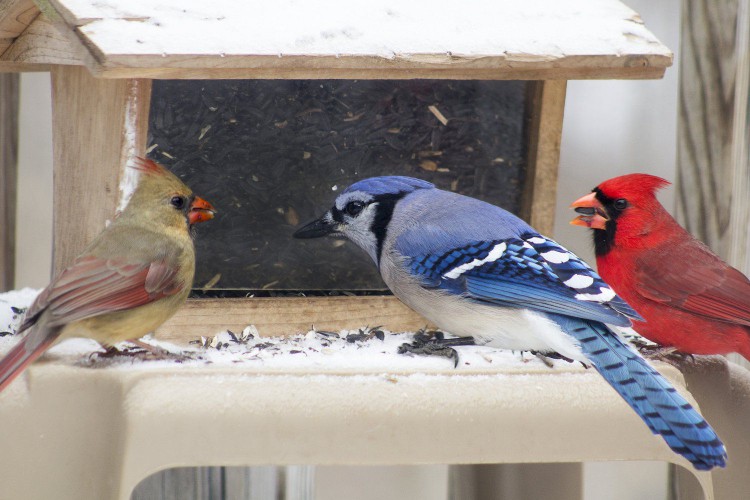
Sally Robertson/Flickr/CC by 2.0
If a bird who normally has a healthy appetite suddenly begins to show less interest in eating, it can be an indicator of stress and/or health problems. A good rule to follow in this type of situation is to schedule an appointment with an avian vet to make sure that the bird is not sick or injured. If your feathered friend's health checks out, you can then begin to try and decipher possible stressors in your home that may trigger appetite loss in your bird.
07 of 12A Change in Vocalization
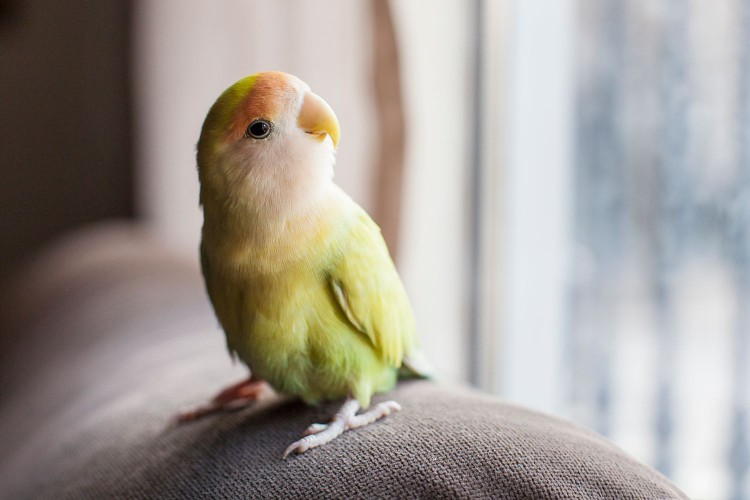
Juana Mari Moya/Getty Images
Some stressed birds will begin screaming. While occasional loud noises can be typical, purposeful screaming can be loud and annoying and a sign of stress. Other stressed birds will go in the opposite direction and decrease their vocalizations. A significantly quieter bird can be a sign of stress, boredom, or sickness.
08 of 12Repetitive Behavior
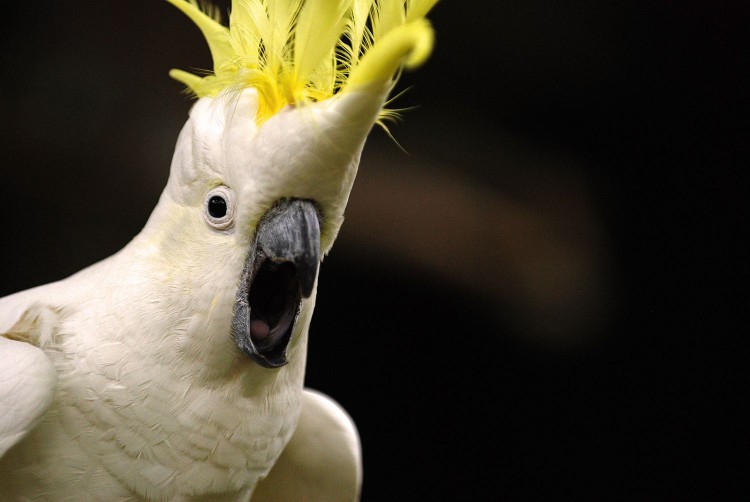
aaa/Getty Images
Some birds, and especially cockatoos, will exhibit stereotypical behaviors when they are stressed. These could include pacing, toe-tapping, and head swinging. They exhibit these behaviors to stimulate themselves when extremely bored.
Continue to 9 of 12 below09 of 12Fear
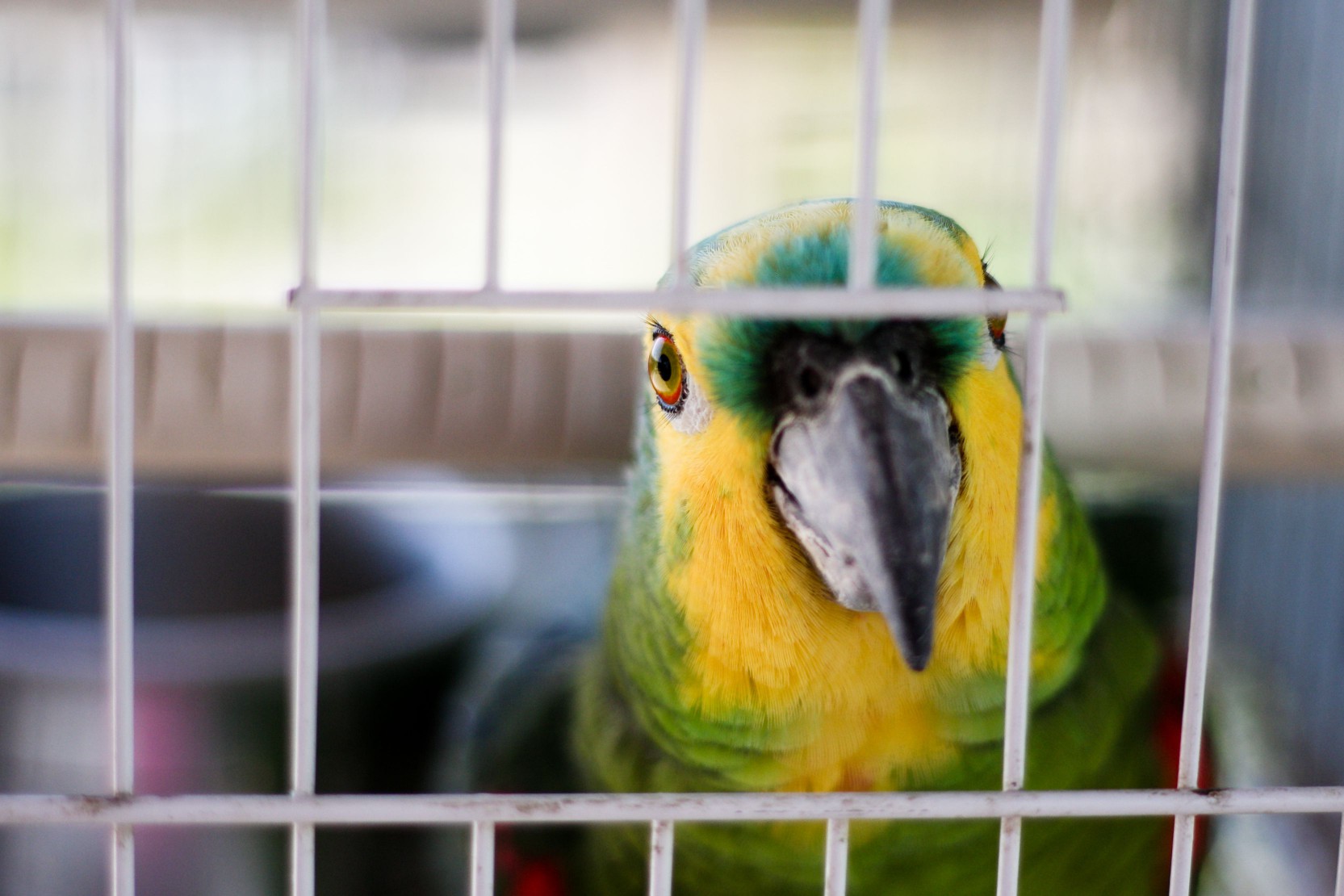
Getty Images/angelalourenco If a bird that is normally happy to be handled suddenly begins to act fearful of you or other family members, the person may be causing stress to the bird without even realizing it. It may not even be something that the person is doing directly to the bird; something as simple as a brightly colored shirt, a hat, or a new beard or mustache can be a trigger for a bird's fearful behavior.
Once you are able to identify a trigger, it is normally easy to remedy this sort of situation. If necessary, it is possible to condition a bird to eventually accept this sort of stressor through patience and practicing proper bonding techniques.
10 of 12Boredom
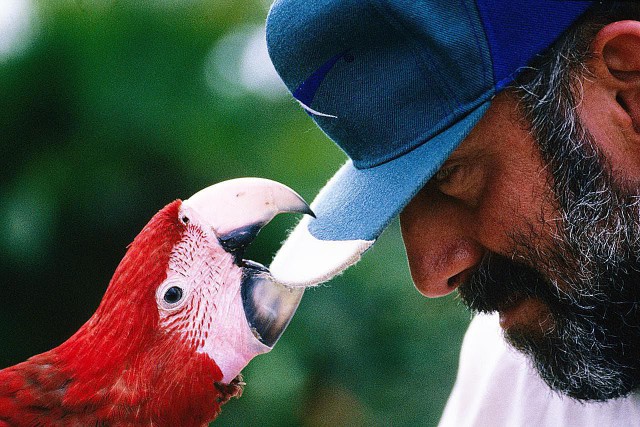
Mark Newman/Lonely Planet Images/Getty Images Birds who begin to exhibit destructive behavior are quite possibly very stressed, and the most likely culprit in this scenario is boredom. Being the extremely intelligent creatures that they are, pet birds in captivity often do not receive a healthy amount of mental stimulation, which can lead to frustration, stress, undesirable behaviors, and even health issues.
11 of 12Treatment of Stress in Birds
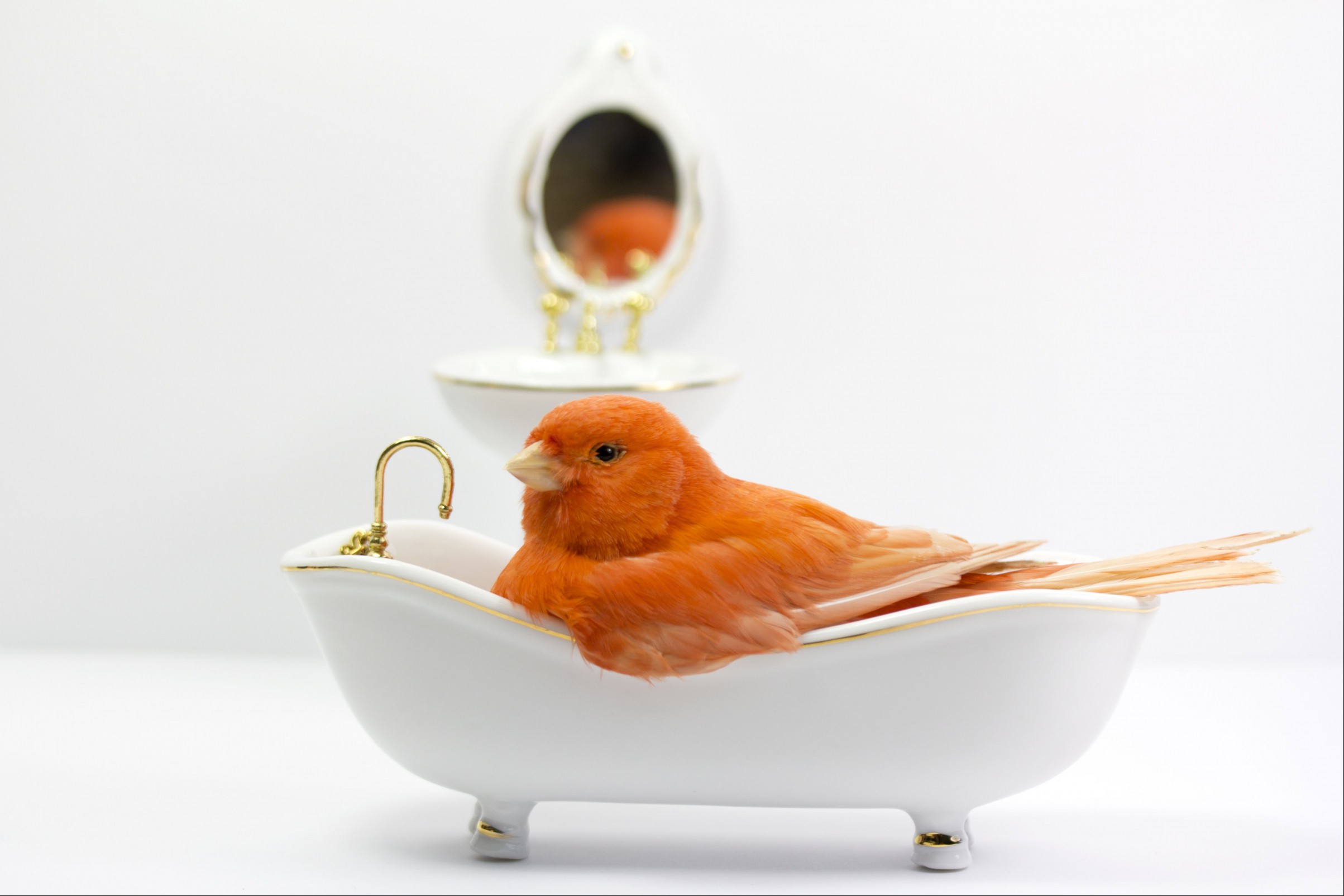
Fernando Trabanco Fotografía/Getty Images
If there's a stressor in the bird's environment, removing it should cut down on its stress almost entirely. If the behavior is self-destructive and/or the stress cannot be determined, speak to a vet as soon as possible to come up with a treatment plan. A vet may prescribe a prescription treatment and/or recommend a behavioral specialist.
If the bird has started acting out due to stress, and you need to try to curb its behavior, there are a few things you can try at home:
- Don't yell at your bird. Whatever you do, don't yell at a stressed or frightened bird. Not only will it startle the animal at the moment, but it may also teach the bird that bad behavior gets attention.
- Move slowly. If your bird attacks you because it's afraid or nervous, moving away quickly may agitate the animal further. Try to move slowly when approaching your bird, reaching into its cage or attempting to pet it.
- Stick train your bird. If you have a bird who doesn't like being handled but who you want to help become more social, offering it a stick or a perch to climb on may soothe it.
- Provide Stimulation. Challenge your bird with stimulating puzzle toys, a TV to watch, a radio to listen to, or something exciting that will maintain interest.
- Out of Cage Time. Some birds will benefit from extra attention from their owner and may appreciate more time out of their cage.
12 of 12Prevention
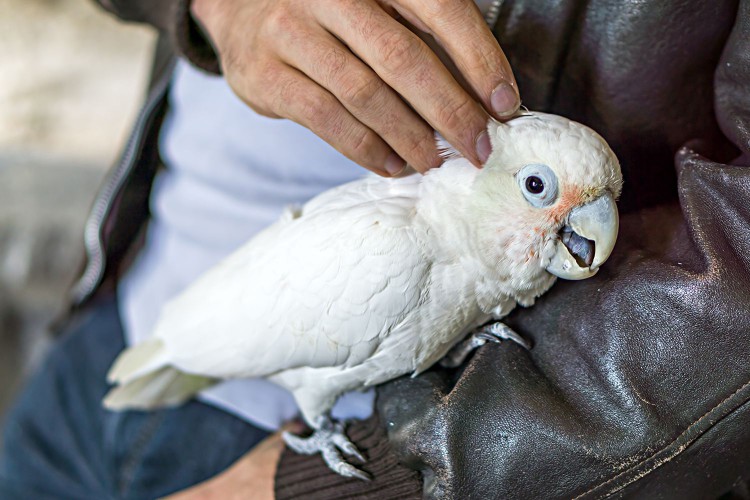
Tomekbudujedomek/Getty Images
While stress may not be entirely preventable, pay attention to your bird's cues and try to avoid sudden changes to its lifestyle. If a cage has been moved and the bird doesn't like it, move it back to slowly acclimate it to a new position. If new pets or family members are upsetting, again, try to acclimate the bird to the new member and focus on positive reinforcement (and treats). Being aware of the bird's general sensitivities before any changes are made will help prevent stress.
If you suspect your pet is sick, call your vet immediately. For health-related questions, always consult your veterinarian, as they have examined your pet, know the pet's health history, and can make the best recommendations for your pet.Related Article
 small-birds
small-birdsHow to Breed Your Own Zebra Finches
Although many finch species are kept as pets, zebra finches are the most popular among bird owners.
 medium-birds
medium-birds5 Fun Facts About Indian Ringneck Parakeets
Indian ringneck parakeets are quite popular companion birds, thanks in part to their beautiful colo
 large-birds
large-birdsMacaw Parrot: Bird Species Profile
Macaws are not a single species; instead, they are a group of 17 species within the true parrot Psi
 bird-supplies-and-toys
bird-supplies-and-toysWhat Is a Cuttlebone?
Cuttlebones are seen in pet stores everywhere. And it seems to be a standard accessory in bird cage
 bird-nutrition-and-food
bird-nutrition-and-foodCan Chickens Eat Pumpkins?
Chickens eat more than just chicken feed, but it doesn't mean all foods they consume are healthy fo
 bird-breeds
bird-breedsShould You Keep a Snowy Owl as a Pet?
Some blame the fictional Harry Potter and his snowy owl sidekick, Hedwig, for giving a false impres
 bird-breeds
bird-breeds8 Top Gentle Pet Bird Species
While all pet birds have the capability to bite and cause a ruckus, certain species tend to be more
 bird-breeds
bird-breeds8 Best Talking Pet Parrots
When we hear the word "parrot," an iconic image comes to mind: a large, colorful bird whose
About WhiskerClub
We are a premier digital platform committed to delivering high-quality content to our readers. Our mission is to provide accurate, reliable, and engaging information that adds value to our audience's daily lives.
Our team consists of experienced content creators and subject matter experts who uphold the highest standards of professionalism. In an era of information overload, we curate content with care, ensuring our users receive only the most relevant and trustworthy information.
Beyond just reporting facts, we focus on depth and context. Through expert analysis, comprehensive research, and clear presentation, we help our audience gain meaningful insights and make informed decisions.
We take pride in being a trusted information source for our growing community of readers. Our user-first approach means we continuously adapt to provide content that meets our audience's evolving needs and interests.
Innovation and excellence drive everything we do. We're committed to improving our platform and services to deliver the best possible experience for our users.

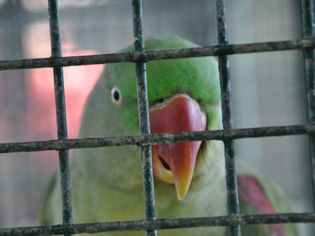
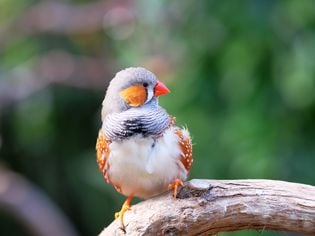
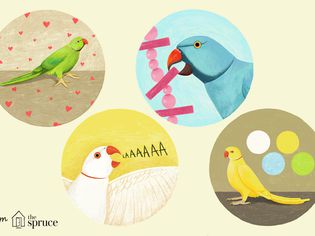
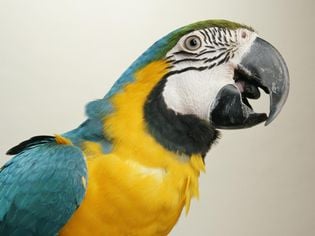
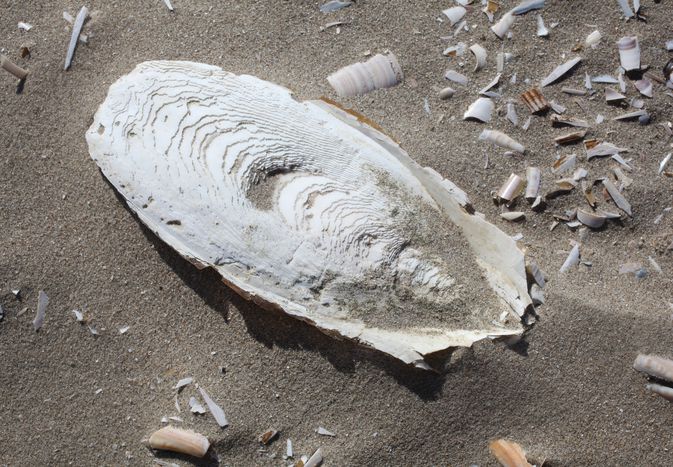
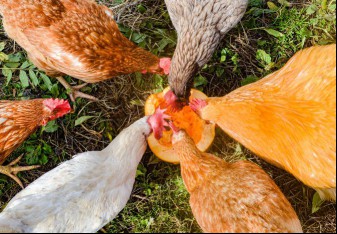
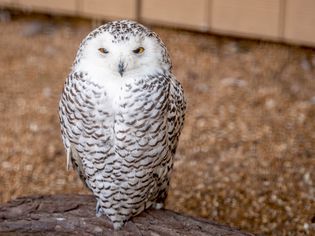
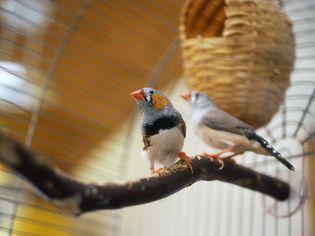
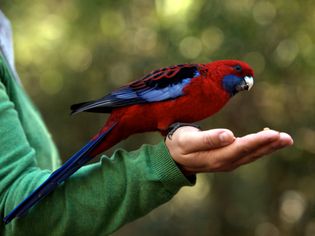
Comments on " Stress in Pet Birds" :